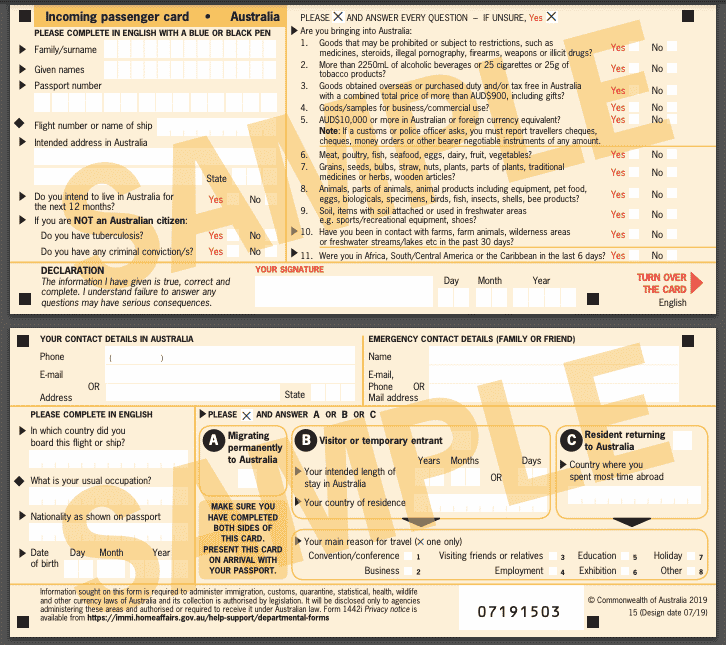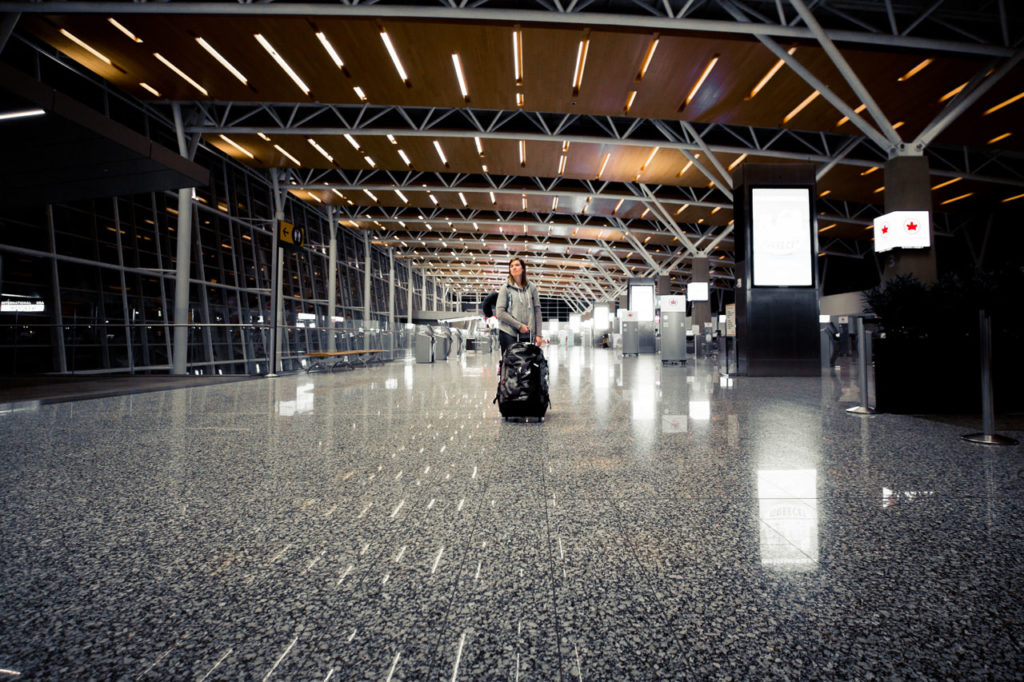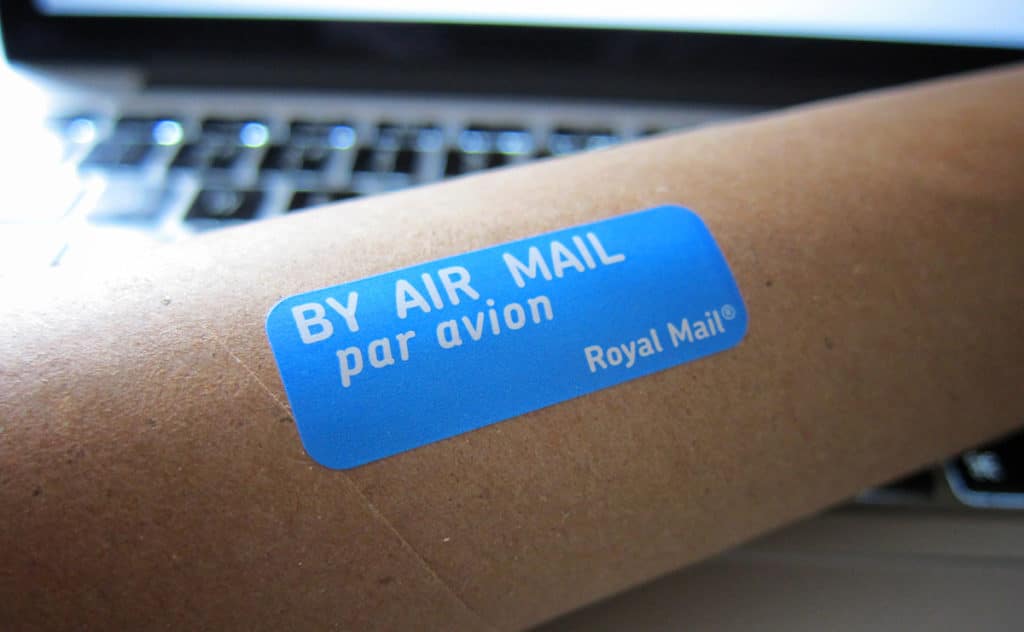
Australia is home to unique biodiversity, and its ecosystems are protected by strict customs controls. On arrival, , regardless of your destination city, you must declare any food, plant, or animal products—some are outright prohibited, while others are only permitted if declared. Failing to declare an item can lead to hefty fines and confiscation. This guide explains what you can import and how to send parcels to Australia with confidence.
Table of Contents
Going through Customs upon arrival
Your first contact with customs will generally be on the plane, where you will be given an “Incoming passenger card” by the flight crew. This card allows you to declare the goods and products that you bring on Australian soil. It must be carefully and honestly filled in by each passenger. This involves ticking the YES box for each category of product you are taking with you to Australia. If you have any doubts about the products you are bringing into Australia, you are strongly advised to declare them.
NB: If you do not speak English well, you can find this passenger card in many other languages upon arrival at the airport, before going through customs.

When you arrive at the airport, your passenger card must be presented at Customs, along with your biometric passport. A biosecurity officer will check your declared items, and may ask you some questions to ensure that the items comply with regulations.
If the officer thinks the goods are low risk, you can keep them. On the other hand, if the goods present a high risk, you have three options: pay a fee so the goods can be processed and subsequently recovered, send them back to their country of origin, or send them to be destroyed. All these options are at your expense.
⚠️ Warning: Even if you don’t declare any goods, be aware that a biosecurity officer can still inspect your luggage. Customs officers can use X-rays or a sniffer dog. Dogs are used extensively at Australian airports. Be aware that you should never touch or pet the dogs, under penalty of being called to order by the agents.
Before your departure, we advise you to read the regulations in force on the Australian Border Force website.

Prohibited Items
Weapons, drugs and counterfeits
Certain products, as in most countries of the world, are completely prohibited: drugs, weapons, fireworks, firecrackers, sharp objects and counterfeit items. These products are prohibited in checked baggage and hand luggage at all airports.
Animal products and plants
Australia bans or tightly controls imports that could carry pests, diseases, or invasive species.
Items made from animals, such as skins, feathers, and bones, may be subject to restrictions. You are not allowed to bring corals, hunting trophies or ivory products. You are not allowed to bring souvenirs made of animal bones through customs, for example.
The importation of live plants and seeds is very strictly regulated. This includes flowers, seeds, and wood products. Many require permits or quarantine. While you can import meat products if they are canned (see below), those that are not canned (including vacuum sealed items) are not allowed into Australia unless you have a permit. Natural species, especially protected species (animal and plant) are also prohibited.
Homemade food and fresh products
You are not allowed to bring fresh fruit (apples, bananas, oranges, etc.) or any fresh product likely to contain micro-organisms. Thus eggs, most plants/seeds, fresh herbs, hazelnuts, walnuts and almonds are prohibited. Forget the homemade cakes and other small dishes that you might have prepared for your trip!
You cannot bring food from the plane or ship into Australia.
For full details on specific items and permit requirements, see the ABF “Can You Bring It In?” list Australian Border Force Website.

Authorised products
You can bring and do not need to declare all commercially prepared and packaged products intended for your personal use and consumption such as:
- Biscuits, bread, pastries, Christmas cakes and pudding (excluding cheesecakes)
- Chocolate or confectionery (fudge, toffees, boiled sweets, peppermints, marshmallows and liquorice).
- Cosmetic products (including soap and hair care products) – up to 10kg per person.
- Maple syrup, golden syrup, treacle
- Vegemite, Promite, Marmite, cheesymite, Nutella, peanut butter
- Roasted coffee is permitted into Australia for personal use (up to 10 kilograms), excluding Kopi Luwak/Civet.
- Chips.
Products to declare
Restricted items may be brought into the country but require a declaration and possibly a permit or inspection upon arrival.
Food
When it comes to importing food, problems can arise if you are not careful. Australia has very strict biosecurity procedures at its borders to prevent the introduction of harmful pests and diseases. Certain food items brought into Australia, even small amounts or ingredients for cooking, need to be declared.
Here is a list of the some of the food products that you can import for your personal consumption but that you will have to declare:
- Meat products are authorised provided they are commercially manufactured and retorted. They must be in sterile cans, jars or retort pouches and must be shelf stable (not require refrigeration or freezing to maintain quality). The products will be inspected by customs officers who will verify that they meet these criteria.
- Cheese, butter, and other dairy products are permitted into Australia for personal use if the product is commercially prepared and packaged and produced in an approved FMD-free country (the product label must list the country of origin).
- Honey is permitted but must be declared. It will need to be inspected by a biosecurity officer on arrival, to confirm the honey items are free from contamination. Note that Western Australia has a higher quarantine status for bees and bee products.
- Green coffee is allowed into Australia, however the goods must be accompanied by a phytosanitary certificate and must be declared upon arrival.
- Infant formula is allowed into Australia for personal use. It must be commercially prepared and packaged and list the country of manufacture on the packaging. The quantity allowed into Australia will depend on the country of manufacture.
- Commercially prepared and packaged nuts are allowed into Australia if they are one of the following:
- blanched/roasted/fried/boiled nuts
- shelled and tightly vacuum sealed nuts
- nuts packaged in small confectionery tins sealed under vacuum.
Please check the Border Force Website for more info on the food your can bring into Australia.
3 000 or prosecution Australian Border Force Website. Biosecurity officers may inspect luggage and question you on declared items.
Tobacco and alcohol
These products should be reported on your arrival in Australia. You have the right to carry a certain amount (preferably in your carry on luggage).
You can’t have more than 25 cigarettes on your person. For rolling tobacco, 25 grams per person is allowed. Chewing tobacco is limited to 1.5 kg per person. Electronic cigarettes should not be an issue if they don’t contain nicotine.
Alcohol is allowed within the limit of 2.25L per person.
Cash
You must declare on arrival if you have more than AUD 10,000 in cash on you when going through customs.
Any merchandise with a value of more than 10,000 AUD (or foreign equivalent) must also be declared. You may also have to pay customs fees totalling 5% of the total value of these products. These declarations can be made online, on the Integrated Cargo System (ICS) website or via a paper document, Form B650.
Duty Free shopping
If you buy Duty Free products, you will also be limited on the quantaties you bring into Australia. If you buy alcohol, again the limit is 2.25L per person. Please note that this is not in addition to a bottle that you may have slipped into your suitcase before your departure. For cigarettes, again the limits are 25 cigarettes per person or 25 grams of rolling tobacco.
If you are 18 or older, you can bring in $900 of general merchandise tax-free. If you are under 18, you can bring $450. For example, this includes perfumes, jewelry, watches, sporting goods, leather goods, cameras, electronic devices and gifts purchased in Duty Free during a stopover at the departure airport.
If you bring in more than your duty-free allowance for general goods, you’ll need to pay duty on all your general goods not just on the excess.
Camping equipment
All camping items can be inspected by customs. It can go as far as the walking shoes you used for a previous trip. The main goal is to prevent unknown bacteria from the soil of other countries from entering Australia. So be sure to thoroughly clean all your equipment that has already been used elsewhere if you plan to take it with you.
Prescription drugs
Prescription drugs should be accompanied by a prescription, and quantities should be reasonable for personal use.
Any drug requiring a prescription should be reported on your arrival. Customs may inspect and request a prescription that allows you to have this medication. Don’t forget to translate your prescription into English, if it is in another language! Drugs that do not require a prescription, such as aspirin, do not need to be reported.
Certain medications need to be declared before the flight. These are drugs that can be used in dangerous, abusive, or addictive ways: steroids, pain relievers, cannabis for medical use only.
For more information contact: Office of Drug Control
Seeds/wood
Only certain seeds are permitted for importation and must be commercially packaged and labeled with their full botanical name (genus and species). They must not be contaminated (live insects, soil, leaves, stems, fruit pulp, pods, animal matter).
Most wooden items are permitted in Australia if they are free of bark, insects and signs of insect damage (such as bore holes) or other contamination. To check if wooden items have been damaged by insects, examine them closely to see if there are any holes or sawdust. Wooden items must be declared upon arrival and inspected.
Bringing your Pet to Australia
Australia tightly controls pet imports to protect its unique ecosystem. If you plan to bring a cat or dog, start at least six months before travel:
- Check eligibility & apply for an import permit via the Biosecurity Import Conditions system (BICON). Not all countries require a permit—consult BICON to confirm your pet’s classification (Group 1, 2 or 3)
- Microchip & vaccinations
- Implant an ISO‑compliant microchip (11784/11785).
- Complete a rabies vaccination and rabies antibody titer test at a DAFF‑approved laboratory 180 days before export
- Health checks & documentation
- Undergo vet checks and external parasite treatments in your home country.
- Lodge your vet certificates, test results and import permit application well before departure.
- Quarantine booking
- Reserve space at the Government Post‑Entry Quarantine facility in Mickleham, Victoria.
- Standard stay: minimum 10 days for Group 2 and compliant Group 3 imports
- 30 days for non‑compliant Group 3 imports, unless they meet all identity and test requirements
- Arrival & release
- On arrival, biosecurity officers transport your pet to Mickleham.
- After quarantine and a final veterinary check, your pet is released.
🦜 Other Pets & Prohibited Species
Many exotic or “unique” pets—rabbits, domestic birds (unless sourced from New Zealand), ferrets, certain reptiles and invertebrates—are banned unless specifically permitted via BICON Agriculture, Water and Environment. Always check your species’ status before you start.
👜 Declaring Pet‑Related Items
On your Incoming Passenger Card, declare all pet supplies: food, collars, bedding, cages or aquarium equipment. Undeclared items risk confiscation or fines.
For more information or if you want to see if your animal is authorised in Australia, visit the dedicated site.

Sending a Package to Australia
Whether you’re sending a gift or business goods, all postal parcels arriving at Australia’s international mail centres undergo biosecurity assessment by Department of Agriculture officers (often with detector dogs or X‑ray).
The rules are the same as those mentioned for importing goods, and should also apply when sending goods to Australia. This applies to everyone, especially families and friends who wish to send a gift to Australia.
To avoid delays, fines or destruction of your shipment, follow these 2025 rules:
What you can send to Australia by post
Goods that arrive by mail and have a declared or assessed value of AUD1000 or less, there are generally no duties, taxes or charges at the border, unless they are alcoholic beverages.
The rules for what you are permitted to send to Australia are similar to those for bringing goods through customs when travelling. Here is a little summary to help you. As far as food products are concerned, you will NOT be able to put homemade products (jam for example), vegetables or fruit in your package. Canned goods are not a problem. Commercially packaged cakes and bottles of alcohol are also allowed. If you send alcoholic beverages by mail with a value of AUD1000 or less, the Australian border will send the recipient an invoice advising the duty and taxes payable. The person will need to pay this invoice before the goods will be delivered.
Other products are prohibited from being sent to Australia. Among them are clothes with real fur as well as cash, precious metals, ivory, semi-precious or precious stones.
If the goods you send have a declared or assessed value of over AUD1000, the recipient will be sent a First Notice by Australia Post advising that he will need to lodge an Import Declaration for the goods. Goods with a value over AUD1000 are unable to be to be delivered by Australia Post unless an Import Declaration is made and any duty, taxes and charges owing are paid in full.
Clean goods before posting them
Remove all soil, seeds or plant matter from shoes, sports gear, fishing or camping equipment.
Avoid packaging in egg cartons, wooden crates, or any dried plant material. Instead, use clean cardboard or plastic boxes, bubble wrap, and void‑fill plastic—this helps pass biosecurity screening.
Packaging goods for postage
Avoid packing goods in egg cartons, wooden or cardboard boxes that have been used to hold fruit, vegetables or meat. These packaging materials pose a biosecurity risk because sometimes living insects can hide in the interstices. Do not package items using straw or any dried plant material. Use newspaper or foam to wrap fragile products.
Make sure the package is securely and securely packaged to avoid damage in transit. Use bubble wrap, strong cardboard boxes and tape to seal the package.
Declaring goods sent in the post
Before posting, complete the customs declaration (CN22/CN23) at your local post office or online. List every item clearly—don’t use vague terms like “gifts.” Include a detailed description of everything inside the package. Misdeclarations can lead to confiscation or fines up to $63,000.
When you have completed the declaration, a bar code with a number will be sent to you. You will need to provide this information to the counter when posting your package.
If the goods arrive and do not meet the import conditions, they will be destroyed or returned to the foreign postal agency.
If, after evaluation by biosecurity officers, your mail does not present a risk, it will be released for delivery by Australia Post.

Pro Tip: Always check the Biosecurity Import Conditions system (BICON) for up‑to‑date rules on your specific items before posting. That way, your package arrives quickly—and intact!
Fines and penalties
If you do not declare goods that need to be declared with customs, or make a false statement on your passenger card, you risk being caught, prosecuted, and fined. At worst, fines can amount to more than 420,000 AUD, and be accompanied by a prison sentence of up to 10 years.
On the other hand, under the Biosecurity Act 2015, you will not be penalised if you declare all goods, even if they are not permitted in Australia.
Remember that the Australian government is quite strict on customs regulations. This is because of the risks involved in importing bacteria from outside the Australian environment, which can have a negative impact on Australian biodiversity. This is why there are so many rules and penalties (fines and confiscation and destruction of the object concerned).
If in doubt
If you have any doubts about a parcel shipment and its contents or about an object/product that you wish to take to Australia, we advise you to contact Australian Border Force directly:
By telephone (from abroad): +61 2 6196 0196. Monday to Friday, 9 a.m. to 5 p.m. (AEST)
Please note that the centre is closed on Australian national holidays (New Year’s Day, Australia Day, Good Friday, Easter Monday, Anzac Day, Christmas Day and Boxing Day).
You can also visit their website for more information: abf.gov.au
Frequently Asked Questions
Yes, provided that the products are industrially prepared and present no risk of microbiological contamination. See the lists provided in this article.
Yes, provided you bring your doctor’s prescription and don’t have more than 3 months of supply with you.
Yes, all items made from plant material should be declared to ensure they do not pose a biosecurity risk.
No, live plants are not permitted through customs in Australia.
It is possible to bring art and antiques into Australia, but it is important to check the rules and restrictions before you go. It is also important to declare all works of art and antiques upon arrival at customs.
Yes, you must declare all items you bring into Australia, including goods, food.
You will need to present your passport, your Incoming Passenger Card (explained above), your visa is linked to your passport so the agents will see it when scanning your passport.
Failure to declare items to customs may result in penalties, including fines and confiscation of goods. It is essential to be honest and respect customs rules.
Sources :
- Australian government website: www.australia.gov.au
- Australian Customs and Border Protection: www.border.gov.au
- Ministry of Agriculture and Water Resources Australia: www.agriculture.gov.au
The information provided in this article is for informational purposes only and is subject to change. We invite you to consult the official websites cited or to contact the Australian customs services directly.



























Can I bring a diamond engagement ring into Australia? I want to propose to my girlfriend in Australia.
Hi Shane, yes but you ll need to declare it when entering the country. Cheers and congrats 🙂
I can bring nuts and granola bars/protein bars for personal consumption on the flight over, but, must throw out prior to going through customs, am I reading that right? Nuts/seeds? I’m talking Roasted cashews,almonds, walnuts, brazil nuts, but, in a size large enough for my husband and I to snack on for our flight.
Hi Mlee,
If packaging is industrial and products not opened, you can keep them. You will have to declare them on your incoming passenger card. And the officiers will check those. Cheers
Hi! Can I mail a coffee mug to Australia that I bought at the store? I can’t seem to find information on this. Thank you!
Hi Rose, yes it shouldnt pose any issue. Cheers
Hello! Could I mail a coffee mug and plastic toys to Australia? I’m a bit confused with what I’m finding. Thank you!
Hi Jen, yes that is fine. Cheers
I am a Seed grower in Tasmania, Can I purchase heirloom/open pollinated seeds in NZ and bring them over on the plane with me and declare them as long as they are on the permitted list/properly labeled?. I am applying for the approved seed importer in Tassie but not sure on the process to get them in to Australia on a plane. Do i need to bring a photosan cert for commercial packaged seeds?
Hi Abbey, definitely a query you should direct to https://www.abf.gov.au/
Hi can i bring vanilla essence with me to Australia? Also, medicinal supplements such as pcos supplements and metformin medicine?
Hi Hiba, if commercially packed no issues, regarding the supplements it shouldn’t be an issue too, for the metformin i would recommend you contact the boarders to have their answer. Cheers
Can I bring lemongrass essential oil that is transferred out of its original bottle? Or do i have to keep it in its original packaging bottle
i Amy, leave it in its original bottle 🙂
I own a small ceramic business in Australia, can I bring back powdered and gloss glazes ?
Hi Courtney, you will need to declare everything…not sure it will be accepted though. Cheers
Hi,
Can I bring instant food (packed food just mixing with hot water)? It’s packed by the manufacturer and it’s not opened.
Hi Rathan, in your carry on luggage? Yes but you will need to declare it if you still have it with you when you arrive in Australia (only if ingredients listed on the Incoming Passenger Card). Cheers
Hi, if I’m transiting via Australia, can I bring food and drinks in my checked in luggage?
Hi Cherie, yes shouldnt be an issue. Cheers
Hi, can I bring banana flavoured milk? (Similar to yakult) and dried fruits (both commercial) to Australia from Korea?
Hi Joan, they ll need to be commercially packed and unopened. You ll need to declare those upon arrival. Cheers
Hi,
Can I bring a machine into Australia by plane? It’s a lid sealed machine, for business purposes. Or do I need to ship it by sea?
Thanks in advance
Hi Lili, no it shouldn’t be an issue to bring it with you 🙂
Can I bring electronic fishing bite alarms with my fishing equipment
Hi Martin, I would think it is ok but I advise you to contact the boarder authorities – their details are on the article. Cheers
I just cane back to Perth yesterday and customs charged me for bringing canned corned beef and pate in a can. Is this right? I always bring the same canned food for years but got penalised just this time. Charged me AUD630.
Hi Cris, maybe you didnt declare it?
Hi,
Can I bring coffee (Arabica), fish sauce, and seasoning to Australia? All of these products are from Vietnam. Thanks for your advice.
Van Nguyen
Hi Van, if everything is commercially packed it shoudn’t be an issue but you will need to declare it. Cheers
Hi can i bring 7 to 8 pairs of shoes? Thank you
Hi Glen,
Yes you can. Cheers
Hi….can I bring back from bali the ever popular rattan round ladies bags…thanks
Hi Hayley it shouldnt be an issue I think 🙂
How many cigar sticks can I bring from Bali into Australia
Hi, I believe it is 25 grams per person. Cheers
Can I take some fried beans , dried fish and pickle leaves with me …All goods are bought from supermarket
Hi there, if all packed and unopened it should be ok but you need to declare everything upon arrival. Cheers
Hi, I am able to bring a carved ebony wood Bali dancer, head and shoulders style, back to Australia? Wondering what the current situation is for certified wood art at the moment. Cheers
Hi Geoff,
Quite tricky. You should message the border forces to be sure. cheers
Hi,
Can I bring keshek goat packed to Australia)
Hi Lana, I m not too sure about this one. I mean you can always bring it and declare it upon arrival and see if it s ok. If you declare there is no risk. Cheers
Could I bring Scottish black pudding into Australia, Vaccum packed with all ingredients listed (daughter is pregnant her request !) 😊
Hi Karen, you ll have to declare it upon arrival. Not sure it will pass.
Hi I’m putting a tin of baked beans in my daughters Christmas stocking, family joke, will she need to declare this?
Hi Can i bring weetabix in my suitcase ( hold luggage ) and could I bring 2 x Boxed wine at 2.25l per box?
Hi Karen, You will have to declare these.
Hi there,
Can I bring Quoc Viet Beef Flavored Pho Soup Base, Pork Flavored Soup Base, into Australia from California, USA? Thank you!
Hey, if industrially packed and not opened it shouldnt be an issue. In any case, you will need to declare. Cheers